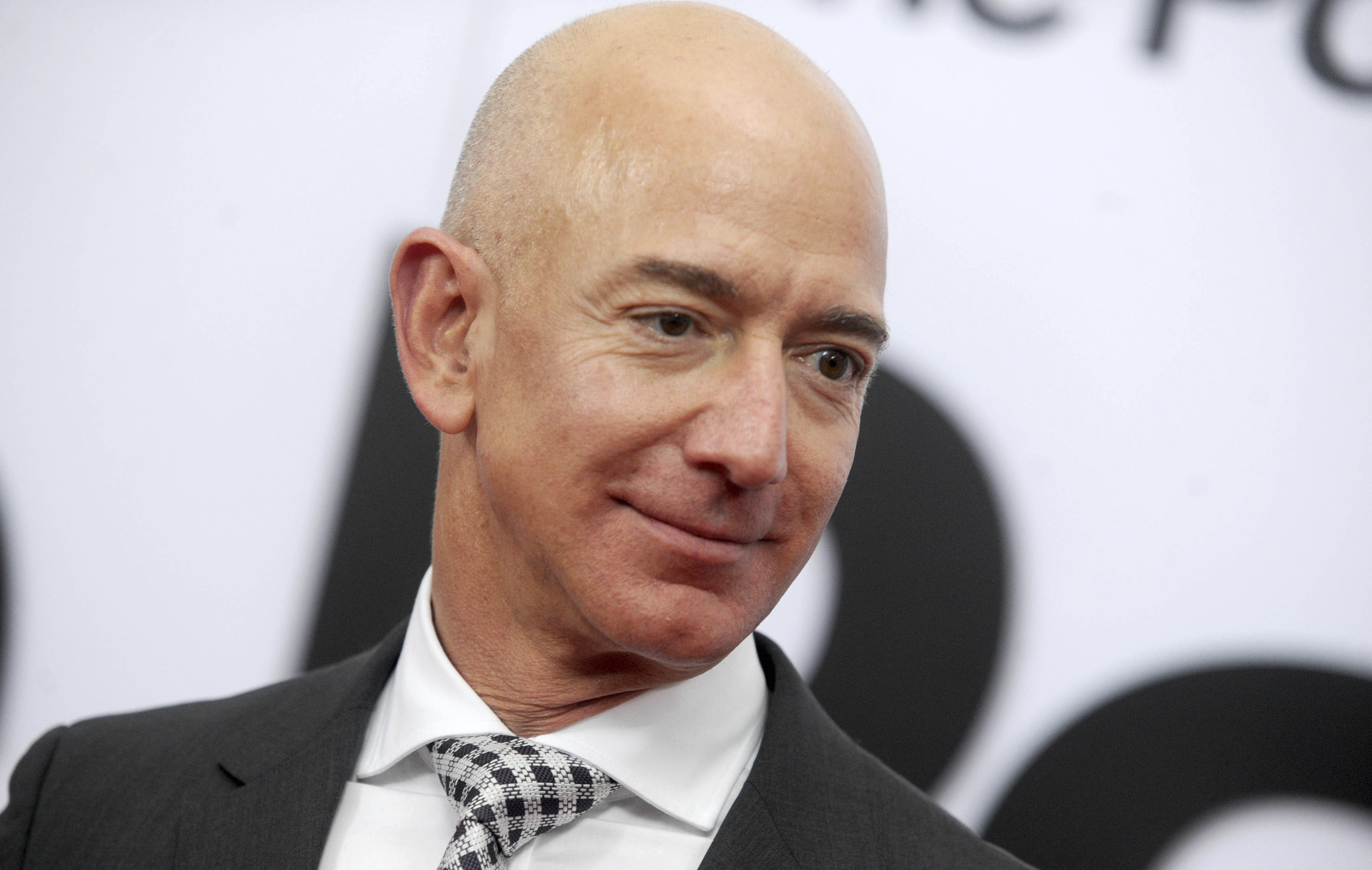Amazon Won’t Pay a Dime in Federal Taxes This Year
A damning new report underscores the shamelessness of the online retailer's 13-month search for a second corporate headquarters. Amazon CEO Jeff Bezos. (Dennis Van Tine / AP)
Amazon CEO Jeff Bezos. (Dennis Van Tine / AP)
Amazon won’t pay a dime in federal taxes this year—just as it didn’t pay a dime in federal taxes the year before.
According to a new report from the Institute on Taxation and Economic Policy (ITEP), which examined Amazon’s public filings, the online retailer reported a $129 million federal income tax rebate for 2018—good for a tax rate of negative 1 percent, or 22 percent below the federal corporate income tax rate. Amazon’s profits this year were $11.2 billion versus $5.6 billion in 2017. As of last September, the company was valued at over $1 trillion.
“When Congress in 2017 enacted the Tax Cuts and Jobs Act and substantially cut the statutory corporate tax rate from 35 percent to 21 percent, proponents claimed the rate cut would incentivize better corporate citizenship,” the report reads. “However, the tax law failed to broaden the tax base or close a slew of tax loopholes that allow profitable companies to routinely avoid paying federal and state income taxes on almost half of their profits.”
Amazon has also benefited from the Supreme’s Court decision last year to overturn its 1992 ruling in Quill v. North Dakota, which had allowed the company’s online competitors to avoid sales taxes, and thereby offer competitive pricing. Huffpost’s Antonia Blumberg notes that Amazon already charges consumers a sales tax in all 45 states where one exists, along with Washington, D.C.
So what exactly does Amazon contribute? Blumberg reveal that the multinational paid a total of $412 million in federal, state, local and foreign taxes in 2017; two years prior, it paid $273 million.
If nothing else, ITEP’s findings underscore the shamelessness of Amazon CEO Jeff Bezos’ extended search for a second corporate headquarters—a 13-month extravaganza in which officials from more than 200 cities attempted to outbid each other with increasingly elaborate tax incentives and subsidies. Earlier this week, the company announced that it would scrap its plans to build a new corporate campus in Long Island City, N.Y., amid fierce backlash from labor organizers, local communities and their representatives.
“It’s too soon to know whether this new revelation, following hard on the heels of Netflix’s similar announcement last week, means that the floodgates have opened for a wave of Fortune 500 corporate tax avoidance,” the ITEP report concludes. “We’ll have a better sense of that a month from now, when most big multinationals will have released their financial reports for 2018, the first full year of the new Trump corporate tax law. But these initial findings appear to confirm the view that last year’s tax law was a gigantic missed opportunity for true corporate tax reform.”
Your support matters…Independent journalism is under threat and overshadowed by heavily funded mainstream media.
You can help level the playing field. Become a member.
Your tax-deductible contribution keeps us digging beneath the headlines to give you thought-provoking, investigative reporting and analysis that unearths what's really happening- without compromise.
Give today to support our courageous, independent journalists.






You need to be a supporter to comment.
There are currently no responses to this article.
Be the first to respond.